The pet industry, with its constant evolution and dynamic market trends, demands that manufacturers not only innovate in product design but also in their approach to marketing. Specifically, for pet training pad manufacturers, understanding the dual audience—B2B and B2C—is critical. This article explores the multifaceted strategies that can be employed to effectively reach and engage with a B2B audience, thereby ensuring that these essential products, from puppy pads to pee pads, are positioned to meet the needs of the ultimate end-users: pet owners.
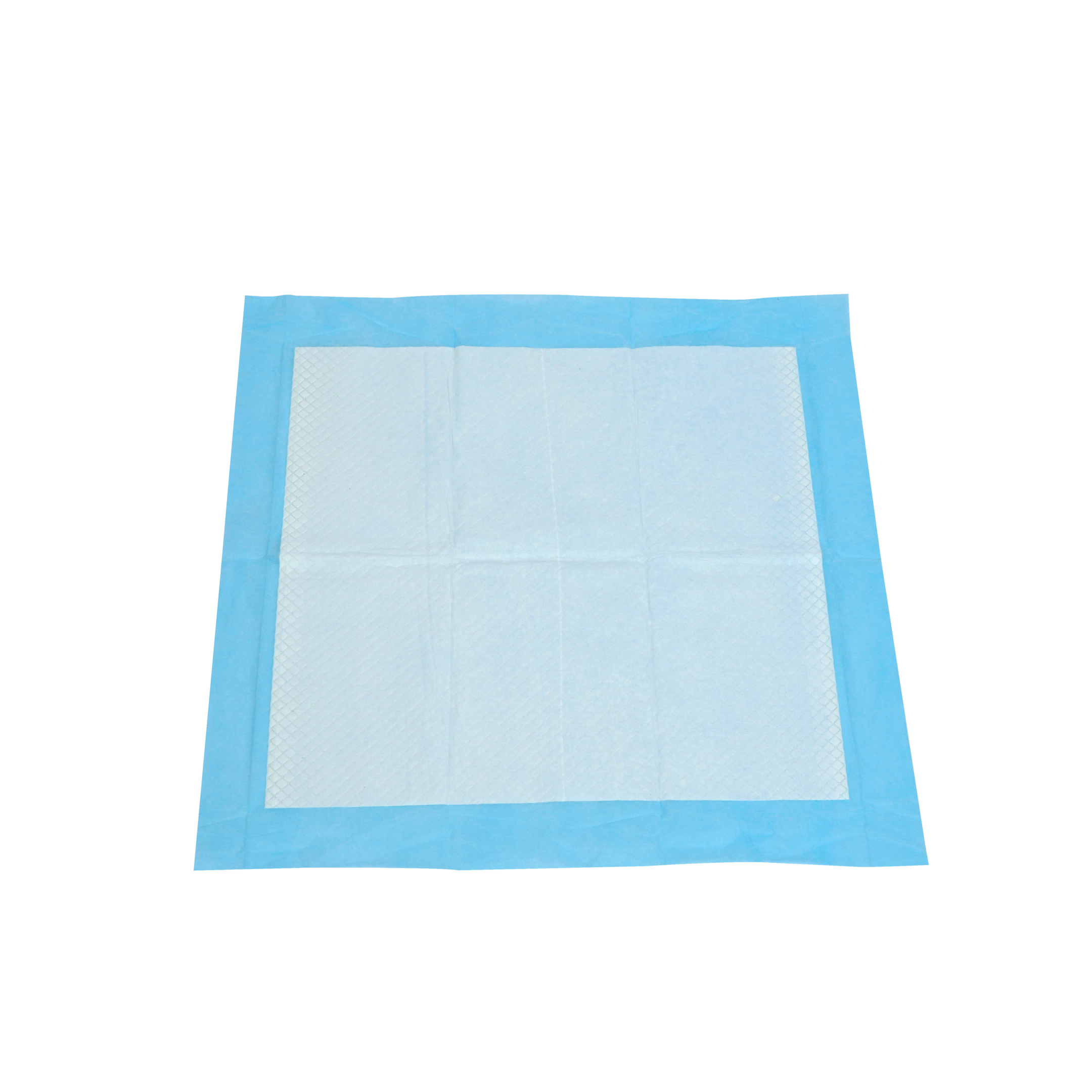
Understanding the Market
The Importance of Puppy Potty Training
The initial stages of pet ownership are pivotal, setting the tone for the pet-owner relationship. This period is often marked by the challenge of puppy potty training, a task that can be daunting for new pet owners. Pet training pads, serving as an indispensable tool during this time, ease this process by offering a convenient solution for managing accidents. For manufacturers, emphasizing the role of their products in facilitating a smoother potty training experience is a compelling angle for marketing communications.
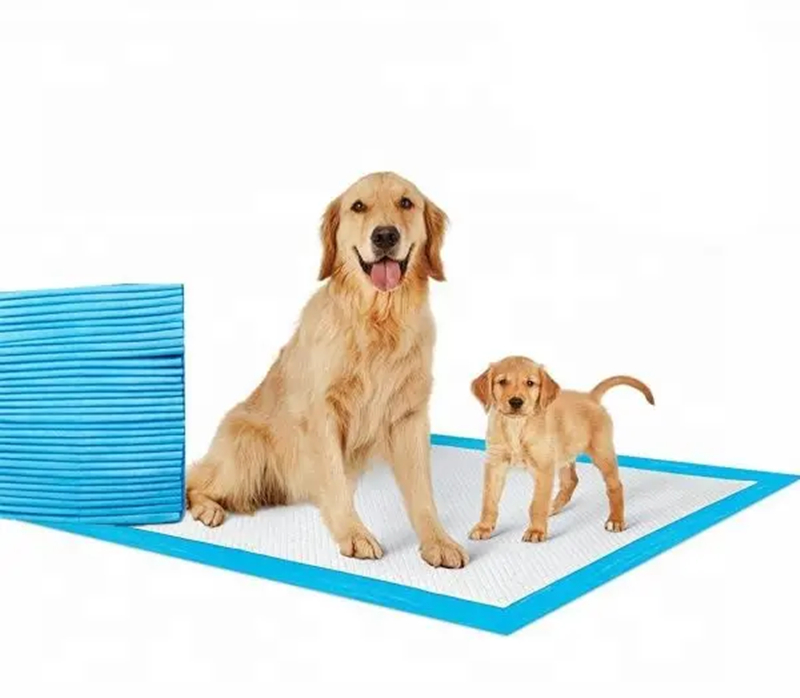
Identifying Your B2B Audience
Recognizing your B2B audience is the cornerstone of any successful marketing strategy. This group is diverse, encompassing entities from small independent pet stores to large retail chains, veterinary clinics, and online e-commerce platforms. Each segment has its own set of needs, from bulk purchasing options to specific product features like odor control or eco-friendliness. Tailoring your marketing strategy to address the unique demands of each segment can enhance your brand’s appeal and market presence.
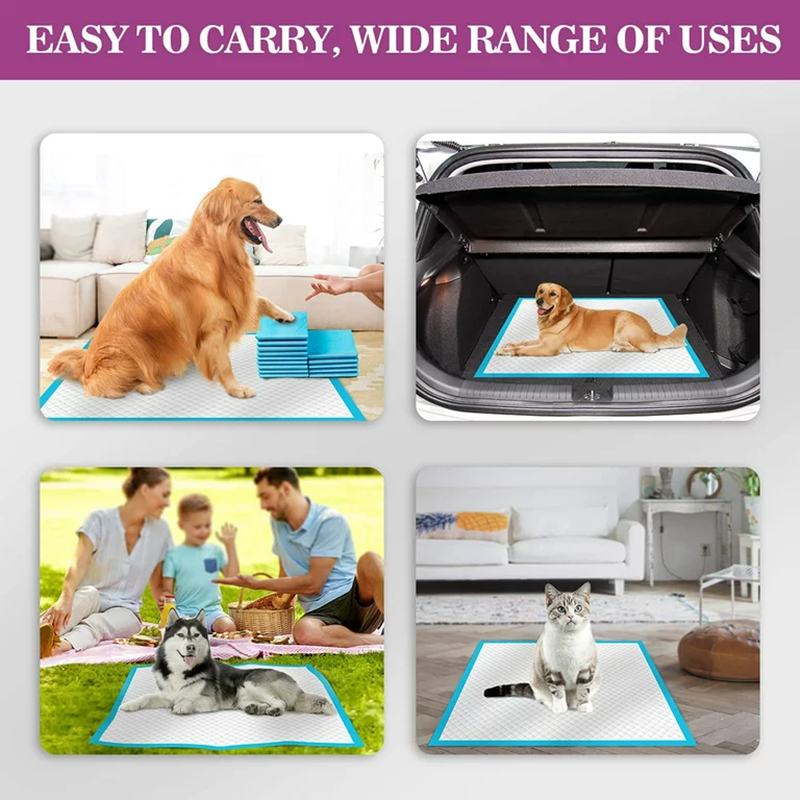
Product Features That Stand Out
The Science Behind Absorbent Layers
The effectiveness of a pet training pad largely depends on its ability to absorb and contain moisture. Advanced technologies have led to the development of pads with multiple absorbent layers (five layers), offering superior protection against leaks on floor, especially for aging dogs and senior dogs. Manufacturers highlighting the technical aspects and benefits of their product designs can captivate the B2B audience, showcasing the value and innovation behind their offerings.
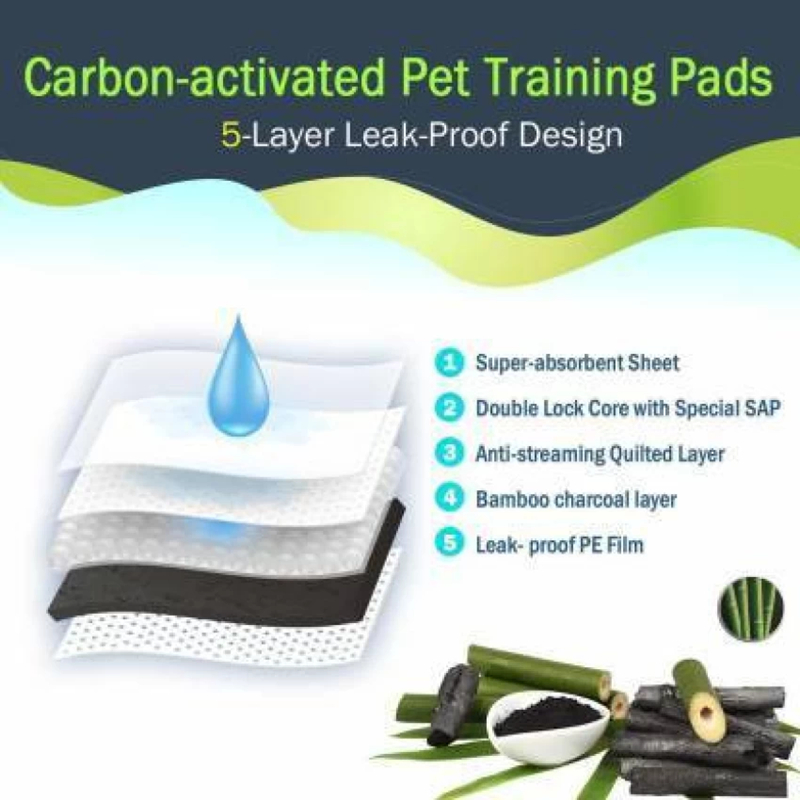
Leak Proof Liner and Odor Control
Leak-proof liners and urine odor control are among the top features sought after by both B2B buyers and pet owners. The use of potty pads takes up smaller space. These features address common concerns related to cleanliness and home hygiene. Marketing strategies that spotlight these attributes can significantly enhance the product’s desirability, encouraging B2B clients to stock and promote these pads more enthusiastically.
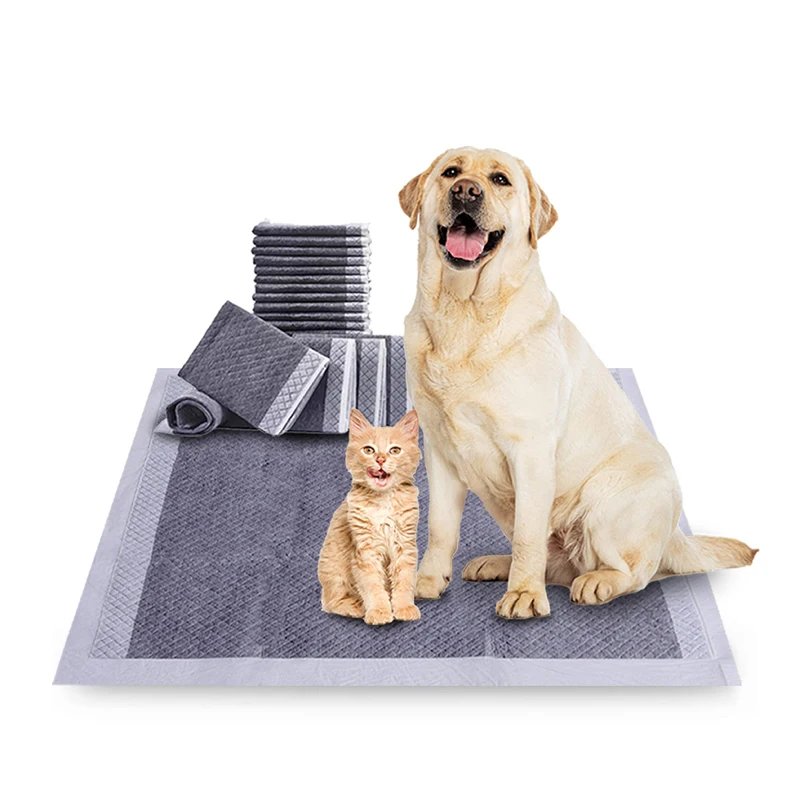
Innovations in Puppy Pad Technology
Innovations in puppy pad technology, such as biodegradable materials and integrated attractants, provide manufacturers with unique selling points. Demonstrating these innovations through various channels, like digital media or industry events, can attract significant interest from B2B clients, distinguishing your products in a competitive market.
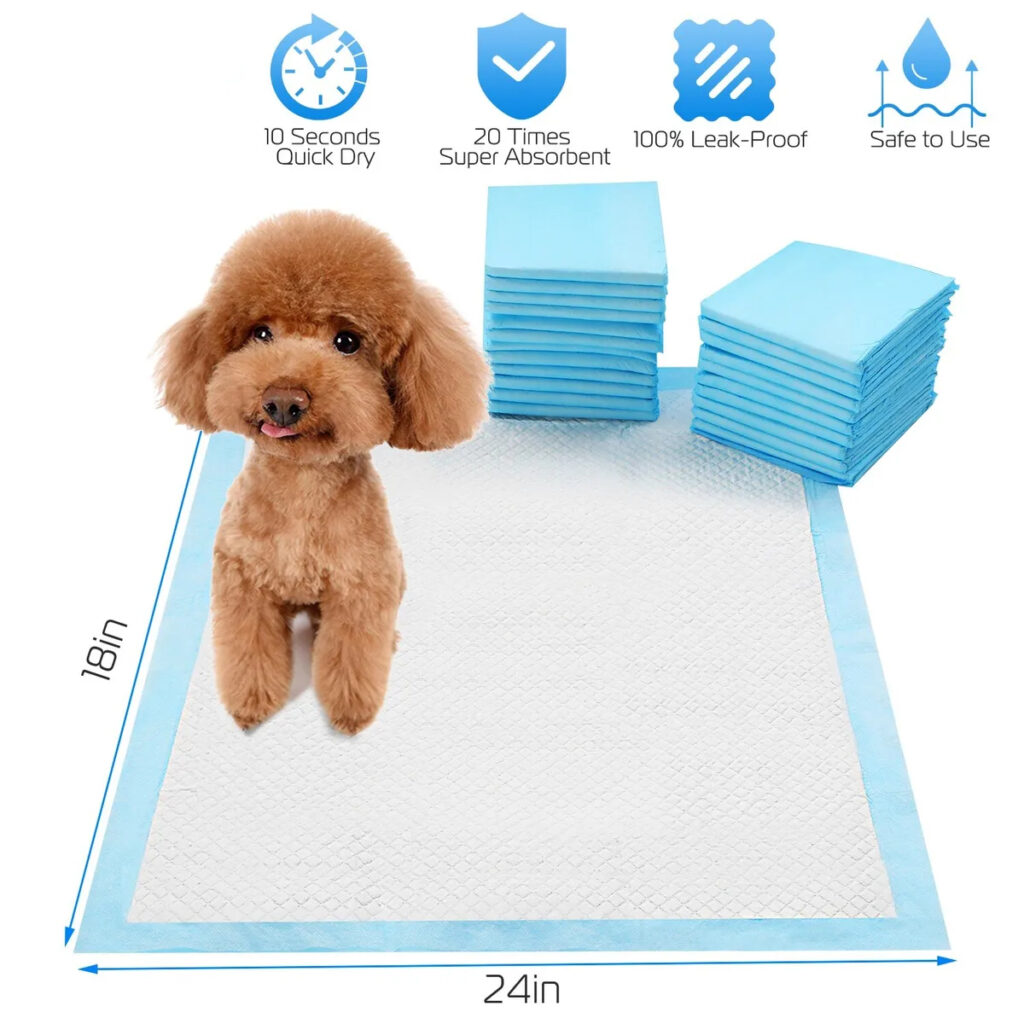
Marketing Strategies for a Digital Era
Leveraging Social Media for B2B Engagement
Social media platforms offer a powerful channel for engaging with a B2B audience. Through targeted campaigns and content that highlights product innovations, success stories, and customer testimonials, manufacturers can build brand awareness and foster relationships with retailers and other business clients.
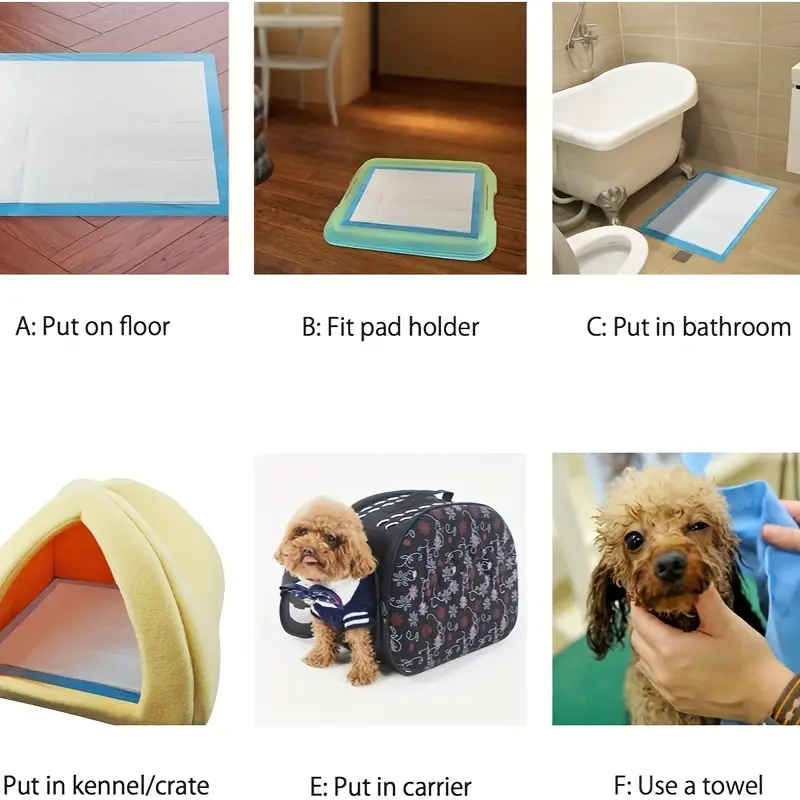
Content Marketing: Educating Your Audience
An effective content marketing strategy can position a brand as a thought leader in the pet training space. By producing informative content that addresses the challenges and questions of B2B clients—such as articles on the benefits of different pad technologies or guides on how to display and sell pads in retail settings—manufacturers can strengthen their relationships with existing clients and attract new ones.
SEO Strategies for Pet Training Products
Search engine optimization (SEO) is crucial for ensuring that your products are visible to B2B clients searching online. Incorporating relevant keywords, such as “puppy pads”, “pee pads”, “dog potty training”, and others, into your website’s content, blog posts, and product descriptions can improve your search engine rankings, making it easier for potential B2B customers to find and choose your products.
Marketing Strategies for a Digital Era
Leveraging Social Media for B2B Engagement
In today’s digital age, social media has transcended personal use, becoming a pivotal B2B marketing tool. Platforms like LinkedIn offer a unique space for manufacturers to connect with retailers, distributors, and other businesses. By sharing insightful content, such as product innovations, usage tips, and customer success stories, manufacturers can build a professional brand image that resonates with their B2B audience. Engaging with potential clients through these platforms not only increases visibility but also establishes a line of trust and credibility.
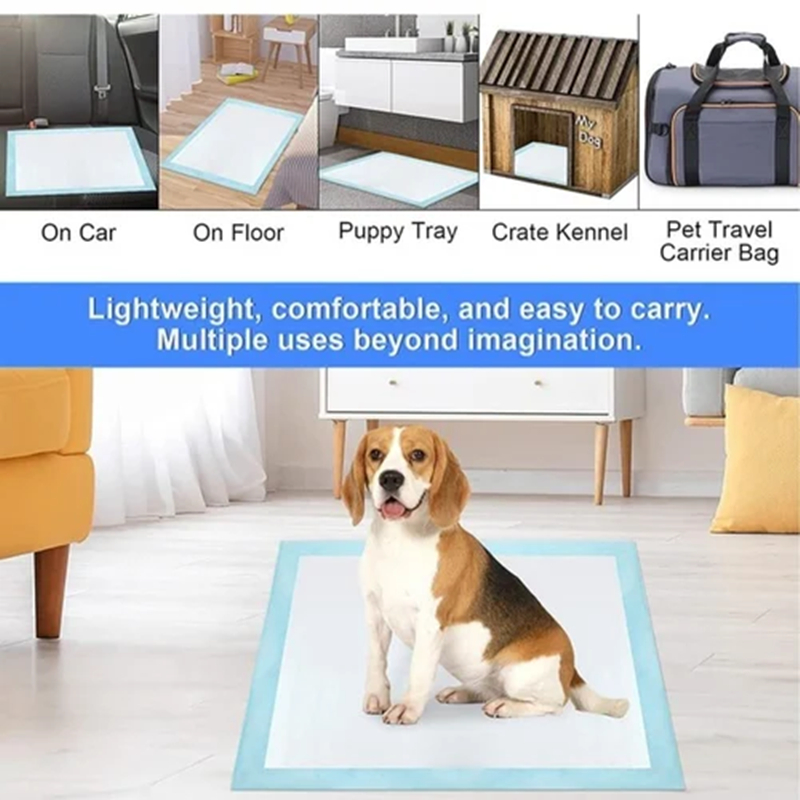
Content Marketing: Educating Your Audience
Content is king in the digital marketing realm, especially when it comes to educating your audience. By creating valuable content—be it blog posts, infographics, or videos—that addresses common questions or concerns about pet(especially dogs and cats) training, manufacturers can position themselves as industry experts. This content should not only highlight the features and benefits of their products but also provide actionable advice that businesses can share with their customers, thereby adding value to their offerings and fostering stronger B2B relationships.
SEO Strategies for Pet Training Products
Search Engine Optimization (SEO) is crucial for ensuring your products are easily discoverable by your B2B audience online. Using targeted keywords such as “puppy pads,” “pee pads,” and “dog potty training” strategically throughout your website’s content can significantly improve your search engine ranking. Additionally, optimizing product descriptions, blog posts, and even social media posts with these keywords can drive more targeted traffic to your site, increasing the likelihood of conversion.
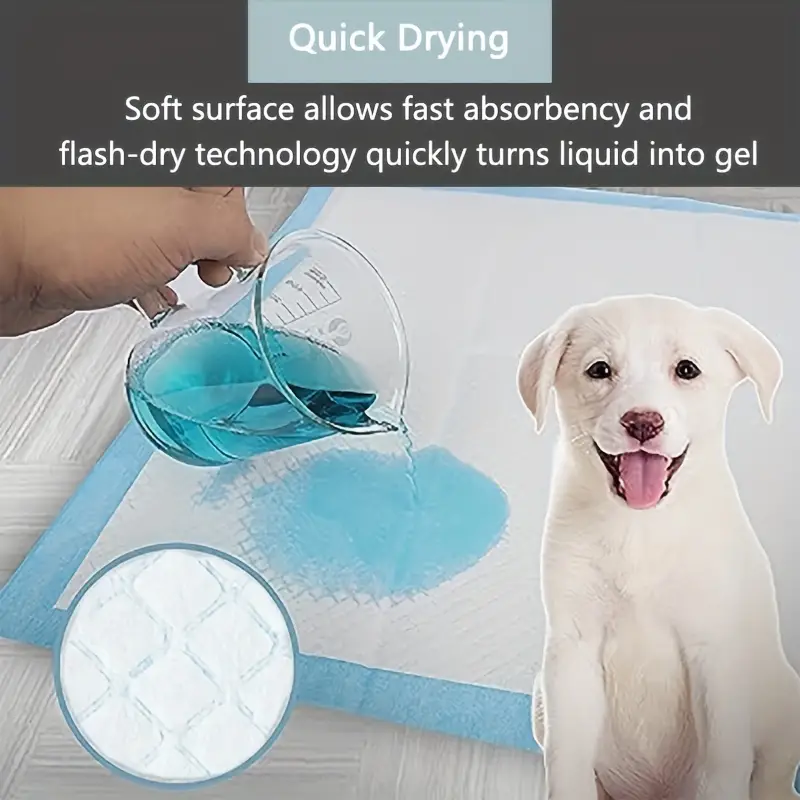
Sales Channels and Distribution
E-commerce Platforms and Direct Sales
The rise of e-commerce has transformed the way businesses purchase products for resale. For manufacturers, having a strong online presence on both their own website and major e-commerce platforms like Amazon is essential. Offering bulk purchasing options, competitive pricing, and detailed product information online can make it easier for B2B customers to make informed decisions and streamline their purchasing process, enhancing overall customer satisfaction.
Subscription Services: A Growing Trend
Subscription services have emerged as a popular trend, providing businesses and consumers alike with convenience and value. For puppy training pad manufacturers, offering subscription options for regular deliveries can be a compelling selling point. This not only ensures a steady revenue stream but also builds long-term customer loyalty by allowing businesses to always have stock on hand without the need for constant reordering.

Partnering with Pet Stores and Vets
Establishing partnerships with pet stores and veterinary clinics can be a highly effective distribution channel. These partnerships allow manufacturers to place their products directly in front of their end users, offering an opportunity for real-world product demonstrations and feedback. Additionally, vet endorsements can serve as powerful testimonials, reinforcing the product’s credibility and effectiveness in solving common pet training challenges.
Customer Engagement and Feedback
Utilizing Customer Reviews and Testimonials
Customer reviews and testimonials are invaluable assets for any business, providing social proof that can influence purchasing decisions. Encouraging B2B customers to share their experiences and feedback not only enhances product credibility but also provides manufacturers with insights into potential areas for improvement. Featuring these testimonials prominently in marketing materials and on product pages can help sway potential clients who are on the fence about making a purchase.
After-Sale Services and Customer Support
Exceptional after-sale service and customer support can significantly impact customer satisfaction and loyalty. For manufacturers, this means providing clear and accessible channels for B2B customers to reach out with any questions or concerns. Offering comprehensive support, from troubleshooting product issues to assisting with inventory management, demonstrates a commitment to not just making a sale but also ensuring the success of your clients’ businesses.
Community Building Through Events and Forums
Building a community around your brand can foster a sense of belonging and loyalty among your B2B audience. Organizing events, whether virtual webinars or in-person trade shows, provides an opportunity for direct engagement with your products and team. Similarly, participating in or creating online forums related to pet care and training can position your brand as a helpful and knowledgeable industry player, further strengthening your market position.
Conclusion: The Future of Pet Training Products
The landscape of the pet training product market is ever-evolving, driven by advances in technology, shifts in consumer behavior, and the growing needs of both pet owners and businesses serving them. For manufacturers of pet training pads, staying ahead means more than just creating high-quality, innovative products. It involves adopting a multifaceted marketing strategy that embraces digital trends, values customer engagement, and continuously seeks to understand and meet the dynamic needs of the B2B market. By leveraging the strategies discussed, manufacturers can not only navigate the complexities of today’s market but also set the stage for future growth and success. As the industry moves forward, those who prioritize innovation in both product development and marketing efforts will lead the way, creating lasting impacts on the lives of pets and their owners worldwide.
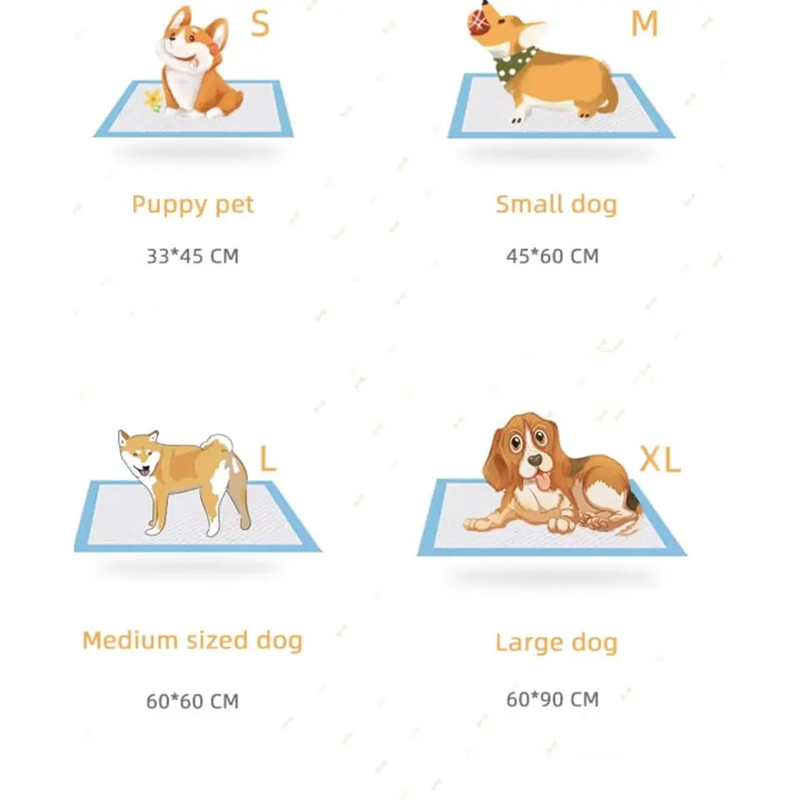
الأسئلة الشائعة
1.What makes a pet training pads stand out in the competitive market?
The key factors that make a pet training pad stand out include its absorbency levels, odor control capabilities, leak-proof design, and eco-friendliness. Innovations that offer added convenience, such as biodegradable materials or subscription delivery services, can also significantly differentiate a product in the market.
2.Can smaller pet training pads manufacturers compete with larger companies?
Yes, smaller manufacturers can compete by focusing on niche markets, offering superior customer service, and emphasizing unique product features or eco-friendly options that larger companies may not provide. Building strong relationships with local pet stores and leveraging online marketing can also help level the playing field.
3.How can manufacturers effectively gather feedback from their B2B clients?
Manufacturers can gather feedback through surveys, direct interviews, feedback forms included with orders, or by hosting forums and discussions at industry events. Engaging with B2B clients on social media platforms and encouraging online reviews are also effective strategies.
4.What role does sustainability play in the pet training pads market?
Sustainability is becoming increasingly important as both businesses and consumers become more environmentally conscious. Offering products that are biodegradable, made from recycled materials, or contribute to less waste can appeal to this growing demand and serve as a strong marketing point.
5.How important is digital marketing for reaching a B2B audience in the pet training pads industry?
Digital marketing is crucial for reaching a B2B audience in today’s market. It allows for targeted advertising, content marketing that educates and engages potential clients, and the use of SEO to improve online visibility. Additionally, digital platforms offer invaluable tools for analyzing market trends and customer behavior, enabling more informed decision-making and strategy development.









